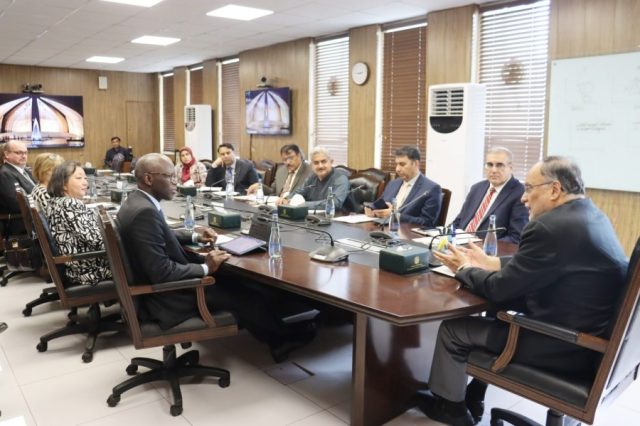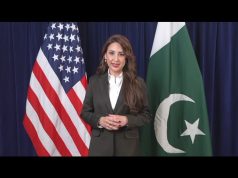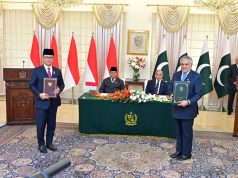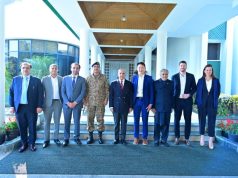ISLAMABAD, Friday, July 25, 2025 (WNP): Federal Minister for Planning, Development and Special Initiatives, Professor Ahsan Iqbal, on Friday called for renewed and robust collaboration with the World Bank to address Pakistan’s evolving economic and developmental challenges. He made the remarks during a meeting with Ousmane Dione, World Bank Vice President for the Middle East and North Africa (MENA) region.
Commending the minister’s contributions to Pakistan’s economic planning, the World Bank VP appreciated Ahsan Iqbal’s role in steering key reforms and fostering a development-focused agenda.
The minister underscored the need to revitalize the existing partnership between the Planning Ministry and the World Bank, stressing that fresh momentum was required to confront pressing national priorities such as economic transformation, climate resilience, and water security.
Highlighting the global shift from industrial to technology-driven economies, Ahsan Iqbal advocated for an export-led development model as Pakistan’s strategic pathway forward. “Our goal is to boost exports from $32 billion to $100 billion,” he said, citing growing investor confidence reflected in the Pakistan Stock Exchange crossing 130,000 points.
He pointed to recent economic reforms and tough policy decisions that helped tame inflation and improve key social indicators, including access to higher education and women’s growing role in national development.
Labeling child stunting as a “serious national concern,” the minister said the government had launched targeted initiatives to combat malnutrition and improve early childhood health outcomes.
On the climate front, he urged the World Bank to expand its role in supporting climate adaptation strategies, particularly for vulnerable regions like those devastated by Pakistan’s 2022 floods. “Climate change is no longer a future threat — it’s a present reality for developing nations,” he emphasized.
Iqbal also raised alarm over India’s alleged violations of the Indus Waters Treaty, warning that “weaponizing water” could destabilize regional peace and spark a broader global food and water crisis. He called on the international community, including the World Bank, to ensure compliance with international water agreements and promote equitable resource sharing.
Briefing the delegation on the government’s “5Es” framework — focusing on Exports, Equity, Empowerment, Environment, and Energy — the minister presented it as a roadmap to revitalize Pakistan’s economy and promote inclusive growth.
He reaffirmed Pakistan’s commitment to sustainable development and urged the World Bank to continue its support across strategic sectors, expressing confidence that stronger cooperation would help realize Pakistan’s long-term development vision.
The meeting concluded with a mutual understanding to deepen institutional linkages and explore innovative pathways for joint action in economic transformation, climate resilience, and social uplift.




